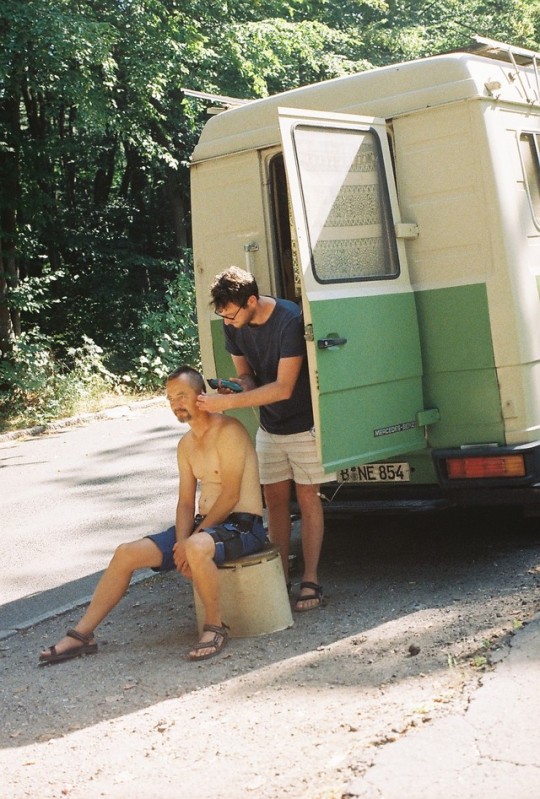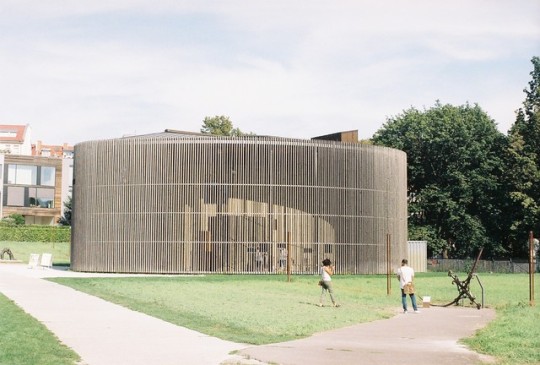#plotzensee
Explore tagged Tumblr posts
Text
ELISABETH VON THADDEN // EDUCATOR
“She was a German progressive educator and a resistance fighter against the Nazi regime as a member of the Solf Circle. She was sentenced to death for conspiring to commit high treason and undermining the fighting forces (Wehrkraftzersetzung). She was brought to Paris and later Berlin, which followed months of dreadful treatment and lengthy interrogations in various prisons and in the penal bunker at Ravensbruck concentration camp. She was beheaded at Plotzensee Prison in Berlin.”
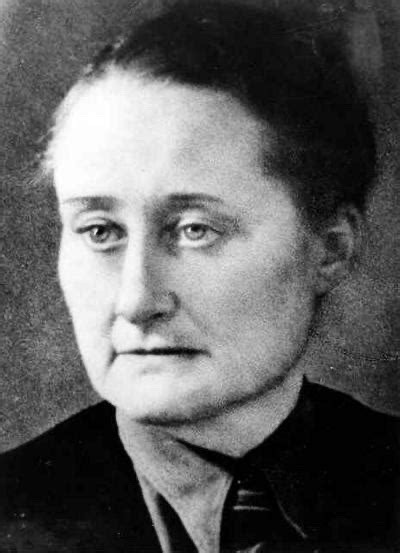
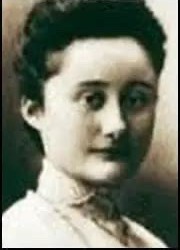
0 notes
Text
El reverso de los mapas
Sábados de súper ficción
El reverso de los mapas
“Detrás de la figura del amante y de la ciudad desconocida está, sin embargo, la misma promesa: volverse irreconocible, empezar de cero, renacer”.
18 de septiembre de 2021
por Luisina Gentile

Salieron del cine a buscar un bar y tomaron hasta que el bar cerró, y siguieron recorriendo la ciudad en busca de bares que también cerraban, hasta que ya no sabían dónde estaban y esa fue la primera vez que estuvieron juntas. El amor o su evento —esa desfiguración de la causalidad— era la razón detrás de todas las copas y el resto poco importa. Si se trataba de tomar hasta perderse como la protagonista de esa película de Akerman, yo también había estado enamorada. O era algo de ese orden, más que el alcohol y menos que el amor, lo que me llevaba a Canadá. El amor es el reverso del mapa de una ciudad sobre el que las personas se desplazan. Las personas se mueven pensando que el amor está en otra parte; o se quedan pensando que lo encontrarán ahí. Detrás de la figura del amante y de la ciudad desconocida está, sin embargo, la misma promesa: volverse irreconocible, empezar de cero, renacer; el viejo truco de encontrar lo que no se perdió porque lo perdido cambia de forma en su ausencia y lo que se encuentra es otra cosa. Entonces hay que elegir. O es la ciudad o es el amor. Yo intuía que todo había sido un error que no quería confirmar en público, viendo desde la ventana del auto cómo los segundos se iban tragando los árboles pelados y los carteles que achicaban los kilómetros al aeropuerto. La música no pegaba con el paisaje —puertas cerradas sin llave, calles sin veredas, formas ridículas que la nieve le daba a todas las cosas con total capricho, una cantidad inmanejable de color blanco para la vista— y yo la elegía por eso. La música me permitía construirme una cápsula, erigir una barrera entre Karolina y yo para compartir el tiempo pero no el espacio. Después de una despedida que sólo sé que ocurrió porque de un momento a otro estaba sola en el área de salidas, sin sospechar que iba a largarme a sollozar, me prendí un cigarrillo. Un tipo enorme vestido con un mameluco rojo me invitó a cruzar la calle. En este sector no se puede fumar. Pero a las palabras se las lleva el viento, en cualquier idioma. El amor comparte uno a uno la ciudad en un sistema de medidas equivalentes cuando existe, y cuando ya no lo hace, se repliega sobre sí mismo y elimina el resto del paisaje. Terminé el cigarrillo, me largué a llorar. No fue la última vez que estuve en Calgary .
Problemas populares
Espero el atardecer mientras los basureros se abren y se cierran, como campanadas de alguna iglesia. A lo lejos veo el Plotzensee, donde los nadadores sostienen la línea del horizonte con sus hombros. Sentada en este banco mi mundo interior se hace cada vez más grande y cada vez más intraducible. El pastizal crece y va rascando la pintura, apoderándose de las paredes. A veces pienso que ya me olvidé de cómo se habla con la gente, a veces pienso que creo en la telepatía, a veces pienso que creer en eso es una trampa de la ansiedad que en realidad es una enredadera que hay que estar podando y vigilando constantemente. Antes de los problemas con una segunda lengua, antes del español, hay un puente entre el adentro y el afuera, que me cuesta cruzar cada vez más. Me quedo sentada en una orilla o en la otra, mirando la costa muda, mientras el sol de Moabit se vuelve del color de los billetes de cincuenta euros.
Cuando todavía no había llegado a este barrio hablaba y hablaba, levantando palabras como los obreros levantan las construcciones. Ahora este mundo interior se expande como un inmenso patio descuidado o como una pampa que requiere un modo de producción extensivo pero donde a mí me faltan las herramientas para lograr una productividad que realmente dé dinero o algún modo de cambio para trocar con el afuera.
A diferencia de Nueva York todo en Berlín es bastante parejo. Los edificios no suelen tener más de cinco pisos, raramente hay un ascensor. Con la excepción de algunas torres cerca de Alexanderplatz, o algún que otro gran edificio gubernamental de los soviéticos, toda la ciudad es baja y se extiende horizontalmente. La semana que viene comienzo a trabajar. Probablemente intente salir de Moabit.
I will always do what I say I am going to do
Me anoté pensando que serían oficinas, pero al final se trataba de limpiar casas particulares. La segunda a la que fui era el departamento de un matrimonio con un hijo, cerca de Savigny Platz, una parte rica y elegante de la ciudad. La dueña de la casa se llamaba Inga y me pareció que aún sentía algo de culpa por contratar a alguien para hacer la limpieza. Al resto de la familia la conocí por fotos. La primera vez, pasando la aspiradora por el cuarto matrimonial, pensé que llevaban una vida que yo no querría tener en un par de años. La temática de la decoración eran ellos mismos: nuestro casamiento, nuestros quince días de vacaciones por año, los recuerdos recientes de nuestro matrimonio, el paso del tiempo en nuestro hijo. Me sofocaba. En realidad, mi trabajo era limpiar sobre limpio pero no dejaba de tener la sensación de que todo estaba cubierto de polvo. Al lado de la cama, una guitarra colgada era exhibida como memoria de otra vida, pero ¿cuántos años tendrían estas personas? En la cocina me espantaba una botella del detergente vestida con un delantal floreado. ¿Cómo llega una botella a ser vestida con un delantal con flores, volados y encaje?
Yo no tenía nada personal en contra de nada específico de todo su mundo (¿o sí?) pero no me imaginaba siendo feliz llevando la vida que, al menos en mi imaginación, llevaban ellos. ¿Pero por qué? ¿Cuál era el principal problema en eso? ¿La heterosexualidad obligatoria, contratar a alguien para limpiar sobre limpio, la centralidad que socialmente se otorga a la pareja como principal sostén material y emocional? Quizás el principal problema no era nada de eso sino la decoración del lugar. ¿Y si hubiera tenido un poco más de onda, qué? ¿Estaría pensando lo mismo?
Igual yo pasaba el trapo y me reía maliciosamente, imaginando a Jannine teniendo una vida así dentro de poco tiempo. No era una venganza, porque imaginaba que ella misma la anhelaba, pero yo lo sentía así. Mi compañera de doctorado, reuniéndose a tomar el té con sus amigas, intercambiándose halagos pasajeros bastante truchos del tipo: “Qué lindo tenés el pelo hoy!” o “Qué linda tu camisa, where did you get it?”. En alguna ocasión Jannine comentó que le interesaba la teoría queer y yo hice una mueca de horror para mis adentros (ahora que lo pienso ahí no hay nada que reprochar: se nota que le gustaba la teoría queer y no the queerness that could be found everywhere around, even beyond theory, perhaps even more beyond queer theory itself. Maybe that 's the only queerness that matters). Nunca entendí qué le interesaba del arte más que la dimensión social del prestigio. ¿La juntada con las arpías contaba como eso?
Estaba sola en la casa. Antes de irme, abrí la heladera y comí algunas cosas sin dejar rastro y me aseguré de que todo tuviera la cantidad necesariamente abundante como para que no se notara que había un par de rodajas de menos. Me acordé de mi mamá diciendo se lo habrá comido la empleada. Me cambié la remera por una musculosa negra y me fui al Hambüger Bahnhof a ver una muestra de Adrian Piper: The probable truth registry. La muestra era una especie de contrato social de tres cláusulas, suscrito por todos los visitantes que quisieran firmarlo.“I will always be too expensive to buy”, “I will always mean what I say” y “I will always do what I say I am going to do”. Había tres mostradores con recepcionistas, uno por cada cláusula, que entregaban el contrato a firmar. Firmé los tres con la seguridad de que sabía que en la tercera estaba mintiendo, pero me pareció que estaba relativamente bien, de esas tres, fallar en esa.
Görlitzer Park
Es viernes, pero bien podría ser cualquier otro día de sol en esta ciudad donde solo los turistas trabajan de nueve a cinco. En el medio del Görlitzer Park hay un cráter gigante, que lo parte al medio y la gente cruza la depresión despreocupada, que es como siempre luce la gente en los parques desde lejos. Otros entran y salen de los arbustos, abriéndose paso entre las ramas, viniendo de mear o de comprar porro. Los únicos que parecemos estar quietos somos los dealers y yo pero estamos todos en el parque por el sol, sacudiendo del cuerpo tantos días de lluvia como si fuésemos perros.
Con la vista fuera de foco pienso en Wittgenstein y en la idea de juventud. En 1916 se anotó en el ejército y pidió que lo mandasen a la posición que más lo enfrentara a la posibilidad de morir. Volvía todas las noches de la trinchera y escribía en su diario algo así como “hoy me dispararon, tuve miedo. Tengo ganas de vivir!” A Wittgenstein, la guerra no le importaba; quizás no tenía ni idea de por qué estaba sucediendo, en qué bando ni contra quien combatía. Las balas que casi lo matan eran las mismas que le metían las ganas de vivir en el cuerpo, como si las disparase alguna otra parte de sí mismo. Más bien era una guerra contra sí, usando la historia como excusa. Demasiado se habla de la ansiedad como un problema, pero vivir sin ella se parece a vivir en un cráter gigante. Sentirla se parece a sentirse valiente; a estar en el medio de los tiros, a ser el héroe de tu propia guerra. Era eso lo que Wittgenstein había descubierto.
.
Luisina Gentile
Luisina Gentile (Resistencia, Chaco, 1989). Vive y estudia en California, Estados Unidos. El valor de las monedas es su primer libro y acaba de ser publicado por Socios fundadores.
1 note
·
View note
Text
Mary Silverstein, 1943
Berlin, 1943, Prison de Plotzensee
Atteindre ces murs, c’était entrer dans le couloir de la mort. On ne savait pas quand elle nous faucherait, mais elle était partout. Mais Frau Silverstein n’a pas peur de la mort, puisqu’après tout, elle ne tremble déjà pas malgré la pluie de bombes qui déferlent chaque nuit au dessus de sa tête. Mary est assise sur le banc de sa cellule et brode. En brodant, elle pense à Adrian. Qui s’occupera de lui, une fois que son procès aurait eu lieu et qu’elle se retrouverait pendue ? Son mari savait se débrouiller, mais elle avait une certitude inébranlable : Personne n’aimerait son Adrian comme elle. Comment réagirait-il en rentrant de France, apprenant que le régime lui a pris son épouse ? Oh, Adrian serait capable de mettre le feu à l’Allemagne entière. Et ses enfants ? Ses trois petits derniers avaient été récupérés de justesse par Martha, qui avait réussi à les envoyer dans un train, qui les mènerait au port, direction l’Angleterre. Une larme coula sur sa joue à l’idée simple qu’elle puisse ne jamais les retrouver. Ses autres enfants étaient sur le front, à l’est ou à l’ouest, tout dépendait. Ils étaient forts et courageux, elle le savait et elle était déjà fière d’eux. Enfin, il y avait Claudia. Les SS l’avaient envoyé à l’autre bout de la prison, pour les séparer. Ensemble, elles se soutenaient et étaient plus fortes, il était plus difficile de les briser. C’était sa faute, si elle se retrouvait là. Claudia aussi, risquait la pendaison. Leur exécution serait le seul moment où elles seraient autorisées à se revoir. Mais il n’y avait plus de retour en arrière possible. Mary avait essayé. Elle avait voulu résister et elle savait ce que cela impliquait. Le Führer aurait réussi à répandre la terreur jusque dans son foyer alors qu’elle avait toujours voulu l’en préserver. Aujourd’hui, Frau Silverstein attendait la mort. Elle espérait que soit une bombe qui se charge de la récupérer, plutôt que le bourreau du régime, devant une audience galvanisée par un simulacre de procès.
0 notes
Video
vimeo
EINBRECHER, 4’ 09”, 2018
#iceswimming#openwaterswimming#filminstallation#immersivefilm#plotzensee#berlinlakes#einbrecher#badenprojektberlin#zku#weddingberlin#wildswimming
0 notes
Photo

Lake and sun #smarphonephotography #huaweip9 #leicalents #lake #berlinlakes #plotzensee #sun #springsummer17 #berlin2017 #germany (hier: Strandbad Plötzensee)
#berlin2017#leicalents#berlinlakes#sun#germany#huaweip9#smarphonephotography#springsummer17#plotzensee#lake
0 notes
Photo

Second Saint of the Day – 15 January – Blessed Nikolaus Gross – (1898-1945) Martyr, layman, father of seven children, union activist, newspaper editor, apostle of charity. Born on 30 September 1898 at Niederwenigern, Ruhr region, Germany and died by execution on 23 January 1945 at the Berlin-Plotzensee, Germany prison. He was Beatified on 7 October 2001 by St Pope John Paul II at Saint Peter’s Basilica, Rome, Italy.
Nikolaus Gross was born on 30 September 1898 of a colliery blacksmith in Niederwenigern, near the city of Essen and attended the local Catholic school from 1905-12. He then worked initially in a plate rolling mill, then as a grinder and later as a face-worker in a coal mine. He worked underground for five years.
In his limited spare time, he continued his higher education. In 1917, he joined the Christian Miners’ Trade Union. In 1918 he joined the Centre Party (the Catholic political party). In 1919 he joined the St Anthony’s Miners Association (Antonius Knappenverein KAB) in Niederwenigern. It was the major Catholic union for the Catholic miners and a major Catholic voice. At the age of 22 he became secretary for young people in the union. A year later he became assistant editor of the union newspaper Bergknappe (“The Miner”). His work with the union took him around Germany until he finally settled in Bottrop in the Ruhr Valley, in what is now the Diocese of Essen.
In the meantime, he married Elizabeth Koch from Niederwenigern. They had seven children in the course of their happy marriage. He loved his family above everything and was an exemplary father in his responsibility for their education and upbringing in the faith. Gross did not withdraw into the shell of family life. He remained attuned to the great social problems, precisely in his responsibility for his family. Work and social obligations were the place in which he realised his Christian mission. In his doctrine of faith written in 1943 he wrote: “The majority of great achievements come into being through the daily performance of one’s duties in the little things of everyday routine. Our special love here is always for the poor and the sick”.
Nikolaus and Elizabeth below

At the beginning of 1927, he became assistant editor of the Westdeutsche Arbeiterzeitung (West German Workers’ Newspaper), the organ of the St Anthony’s Miners’ Association (KAB) and soon became its editor-in-chief. Here he was able to give Catholic workers guidance on social and labour questions. In the course of time, it became clear to him that the political challenges contained a moral claim and that the social problems cannot be solved without spiritual efforts.
The editor became a messenger who bore witness to his faith here too. When he moved in this capacity to the Ketteler House in Cologne, in 1929, he already had a clear opinion about approaching Nazism . Starting out from Bishop Ketteler’s main idea that a reform of the conditions in society can only be achieved by a reform in attitude, he saw in the Nazis’ success in society: “political immaturity” and “a lack of discernment”. Already at that time he called the Nazis “mortal enemies of the present state”. As editor of the organ of the KAB, on 14 September 1930, he wrote: “As Catholic workers we reject Nazism not only for political and economic reasons but decisively also, resolutely and clearly, on account of our religious and cultural attitude”.
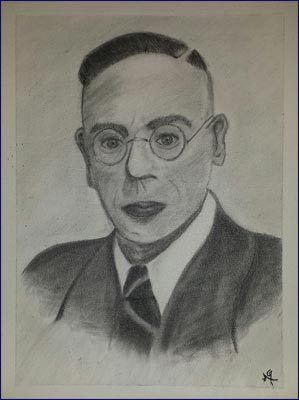
Already a few months after Hitler’s seizure of power, the leader of the German Labour Front, Robert Ley, called the KAB’s Westdeutsche Arbeiterzeitung “hostile to the state”. In the following period, Gross attempted to save the newspaper from destruction without making concessions on its content. From then on he knew how to write between the lines. In November 1938 came the final ban on the workers’ newspaper which, in the meantime, had been renamed Kettelerwacht (Ketteler’s Watch).
Gross, who had to work very hard for his education was no great orator. But he spoke convincingly, warm-heartedly and with power of persuasion. The fact that Nikolaus Gross joined the resistance in Germany resulted from his Catholic religious conviction. For him the key was “that one must obey God more than men”. “If something is demanded of us that goes against God or the Faith, then not only may we but we must, refuse obedience (towards men)” Thus wrote Nikolaus Gross in 1943 in his doctrine of faith. It was becoming ever clearer to him that Germany had reached this state under the Hitler regime.
Gross set down his joint thoughts in two writings which later fell into the hands of the Gestapo: The Great Tasks and Is Germany Lost? They were to contribute towards his execution.

In 1940, Gross had to endure interrogations and house searches. After the ban on the association’s newspaper, he published a series of small pamphlets which were intended to help strengthen the critical force of faith and Gospel values among workers. We find an answer for the reasons which motivated someone like Nikolaus Gross in the memoirs of the well-known, workers’ chaplain, Msgr Caspar Schulte of Paderborn. There we read: “In my many conversations, especially with Nikolaus Gross and the association’s head, Otto Müller, I got to know and admire these men’s moral greatness. They did not stumble into death. They went their way also prepared to bear a painful death for the sake of freedom. I said to Nikolaus Gross on the day before the assassination attempt on Hitler of 20 July 1944: “Mr Gross, remember that you have seven children. I have no family for which I am responsible. It’s a matter of your life’. To which Gross made a really great statement to me: “If we do not risk our life today, how do we then want one day to justify ourselves before God and our people?'”.
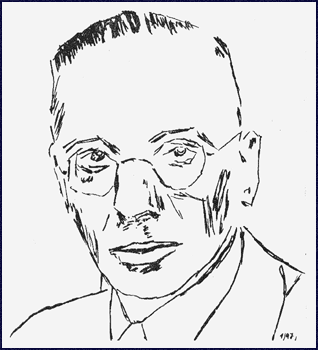
In 1943, Gross wrote in a booklet, what was almost a prophecy: “Sometimes, my heart becomes heavy and the task appears insoluble if I measure my own human imperfection and inadequacy against the greatness of the obligation and the weight of the responsibility. If a generation must pay the highest price, death, for its short life, we look for the answer in ourselves in vain. We find it only in Him in whose hand we are safe in life and in death. We never know what problems are waiting to test the power and strength of our souls…. Man’s ways lie in obscurity. But even darkness is not without light. Hope and faith, which always hasten ahead of us, already have a presentiment of the breaking of a new dawn. If we know that the best thing in us, the soul, is immortal, then we also know that we shall meet each other again”. What a testimony to a sense of responsibility, feeling for reality and assurance of faith! For Gross, trust in God was the foundation on which he did not falter. During the years of the war he formed a network of resistance to the Nazi’s and he was often the courier between the centres of resistance. He was well informed of the plot to assassinate Hitler, even though he took no part in its preparation and execution.
After the abortive assassination attempt on 20 July 1944, events came thick and fast. Gross, who was not himself involved in the preparation and execution of the plot, was arrested towards noon at his home on 12 August 1944 and taken first to the prison in Ravensbrück and then to the penitentiary in Berlin-Tegel. His wife, Elisabeth, came to Berlin twice to visit him . She reported clear signs of torture on his hand and arms. His letters from the prison and the witness of the chaplain, Fr Peter Buchholz, give impressive evidence that constant prayer was the source of strength in his difficult and, in the end, hopeless position. In every letter he never failed to request constant prayer from his wife and his children, just as he himself also prayed for his family each day.
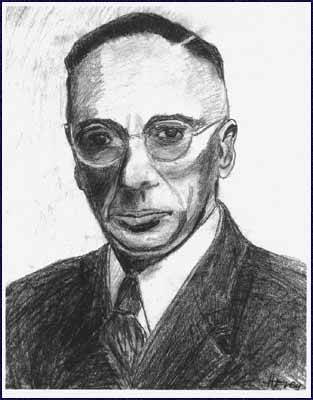
Hitler, even though he took no part in its preparation and execution.
After the abortive assassination attempt on 20 July 1944, events came thick and fast. Gross, who was not himself involved in the preparation and execution of the plot, was arrested towards noon at his home on 12 August 1944 and taken first to the prison in Ravensbrück and then to the penitentiary in Berlin-Tegel. His wife, Elisabeth, came to Berlin twice to visit him . She reported clear signs of torture on his hand and arms. His letters from the prison and the witness of the chaplain, Fr Peter Buchholz, give impressive evidence that constant prayer was the source of strength in his difficult and, in the end, hopeless position. In every letter he never failed to request constant prayer from his wife and his children, just as he himself also prayed for his family each day.
On 15 January 1945, the death sentence was pronounced by the chairman of People’s Court, Roland Freisler. His final remark in the court record and the real reason for the sentence: “He swam along in treason and consequently had to drown in it!”. He was hanged in Berlin-Plotzensee on 23 January 1945. The Nazis did not make any martyrs. They did not allow the hanged man to have a grave. For the followers of falsehood and hatred there was only brutal destruction. His ashes were scattered across a sewage farm.
But the testimony to truth and faith is not to be obliterated! It lives on in those who have gone before us as a shining example. The prison chaplain, Fr Peter Buchholz, who blessed the condemned man on his final walk, reported afterwards: “Gross bowed his head silently during the blessing. His face already seemed illuminated by the glory into which he was getting ready to enter”...Vatican.va

He was Beatified on 7 October 2001 by St Pope John Paul II at Saint Peter’s Basilica, Rome, Italy.

There is a museum dedicated to Nikolaus Gross in Niederwenigern. In 1948 a street in Cologne was named in his honour and streets were named after him in places such as Berlin and Essen amongst others. A chapel was dedicated to him on 10 October 2004 and a memorial stone in Gelsenkirchen-Buer on 26 October 2003.
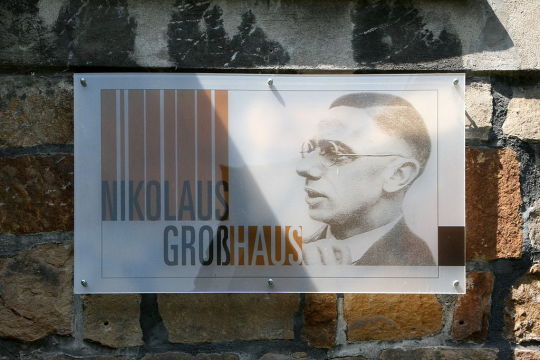
(via Saint of the Day - 15 January - Blessed Nikolaus Gross - (1898-1945) Martyr)
3 notes
·
View notes
Text
ELISE HAMPEL // RESISTANCE FIGHTER
“She was a working class German woman who alongside her husband, Otto, created a simple method of protest against Nazism in Berlin during the middle years of WWII. They wrote postcards denouncing Hitler’s government and left them in public places around the city. They were eventually caught after two years, tried, and beheaded in Plotzensee Prison in April 1943.”


0 notes
Video
vimeo
BADEN TRIPTYCH, 4K video, 3’ 00”, 2017
#behala#westhafen#berlinmoabit#Plotzensee#berlinwedding#openwaterswimming#dronefilming#badenprojektberlin#wildswimming#zku
0 notes
Text
Berlin bits
Lived out of the van for a week in a park near Plotzensee on the outskirts of Berlin. Bauhaus, galleries, Stasi museum, architecture, Tefelsberg, Templehof veld. One of my favourite european cities.
0 notes
Video
vimeo
EINBRECHER (House Breaker), 2018. 3’ 04” HD Video. Documenting the exhibition @ZK/U
#badenprojektberlin#Iceswimming#beaver#plotzensee#openwaterswimming#immersivefilm#Filminstallation#wildswimming#wildswim#openwater#openwaterswim#ultraviolet#ginandtonic#zku#einbrecher#neon#bennathanlondon#matthewcharlesrobinson
0 notes
